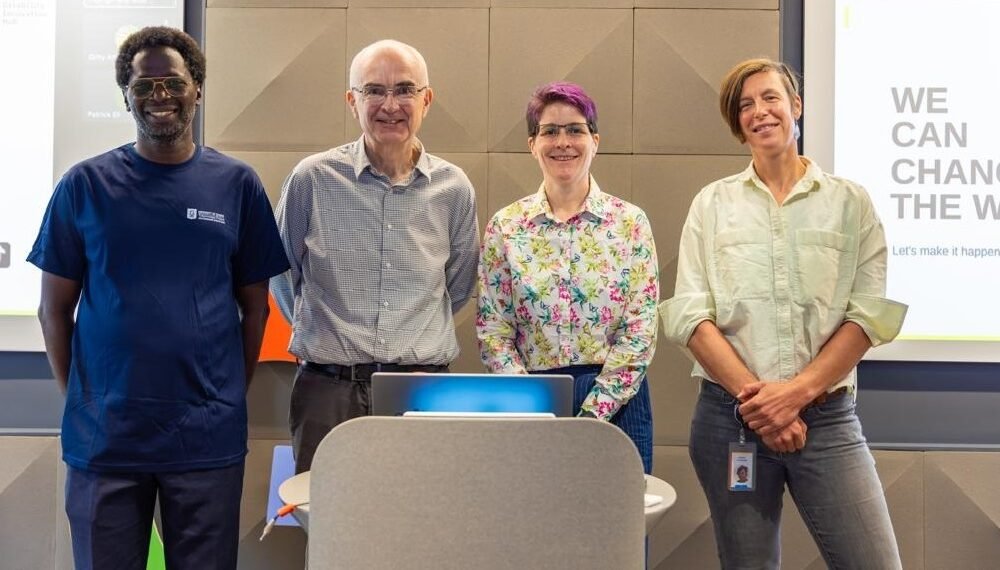News
3 institutions collaborate to improve communication for individuals with non-standard

Prof Wiafe (left) with other speakers at the event
The University of Ghana (UG), Google Research Africa, and University College of London (UCL)’s Global Disability Innovation Hub (GDI Hub) have collaborated on an AI-based initiative to improve communication for individuals with non-standard speech patterns in Ghana.
Known as ‘tekyerema pa’ (Good Tongue) project, it aims to address the gap faced by many individuals with non-standard speech due to conditions like cerebral palsy, Amyotrophic Lateral Sclerosis (ALS) stroke, Down’s syndrome, or parkinson disease
ALS is a rare, fatal disease that causes the progressive loss of nerve cells in the brain and spinal cord that control voluntary muscle movement.
The project is supported by a $40,000 grant from Google with research expertise from UCL’s GDI Hub provided through the AT2030 programme.
At a media briefing in Accra on last Friday, Prof. Isaac Wiafe, Project Lead and an Associate Professor, University of Ghana, said the project was focused on improving AI-powered speech recognition technology for five major Ghanaian languages, marking a significant step in making communication more inclusive for all.
The five Ghanaian languages were Akan, Ewe, Ikposo, Dagaare and Dagbani.
He explained that current software programmes or hardware devices that converts spoken words into a readable text format known as Speech Recognition Technologies often struggle to accurately interpret.
Prof. Wiafe said “we are thrilled to lead this important initiative, which reflects our commitment to using technology to solve real-world challenges.
By developing localised AI solutions, we can ensure that more Ghanaians have the opportunity to communicate effectively, regardless of their speech patterns.”
A Senior Research Scientist, Google Research, Katrin Tomanek, said the project reflected Google’s ongoing commitment to supporting AI research in Africa and ensuring that technological advances benefit everyone, regardless of how they speak.
She said the project builds on continuous research in making Automatic Speech Recognition (ASR) more accessible with the hope of using the insights from their work in project Euphonia to help local researchers create Automatic Speech Recognition (ASR) models for local languages.
She said the collaboration will not only benefit individuals in Ghana but also provide valuable insights for global AI development adding, that it will lay the foundation for future language models and collection in Africa.
By Jemima Esinam Kua